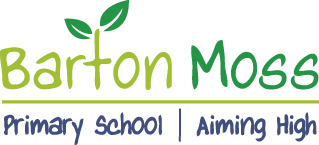Music

At Barton Moss, our Music curriculum is designed to provide children with a comprehensive and engaging experience that fosters musical skills and an appreciation for the history and cultural context of music. Our aim is for students to develop the ability to sing, play tuned and untuned instruments, improvise, and compose music, while also gaining essential transferable skills such as teamwork, leadership, and creative thinking—all vital for their future aspirations and preparation for Key Stage 3.
The intention of Music at Barton Moss is first and foremost to help children to feel that they are musical, and to develop a life-long love of music. We focus on developing the skills, knowledge and understanding that children need in order to become confident performers, composers, and listeners. Our curriculum teaches children to respect and appreciate the music of all traditions and communities by introducing children to music from all around the world and across generations.
